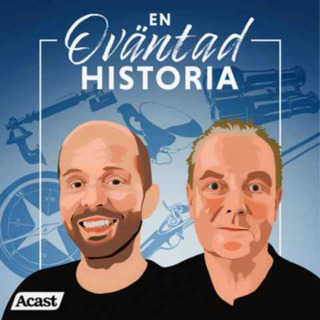
The City in the 20th Century
Melvyn Bragg and guests discuss the artistic, cultural and innovative developments of the city in the 20th century and is joined by two practitioners of the geographer’s art; Professor Doreen Massey, who was awarded the Vautrin Lud International Geography prize - the geographer’s equivalent of the Nobel Prize, and Sir Peter Hall, whose books include The World Cities and Cities Tomorrow. They take a twentieth century perspective on the development of the city. How have cities changed since 1900, and what is their future? How has the 20th century been the century of the city?With Sir Peter Hall, Professor of Planning at the Bartlett School of Architecture and Planning, University College, London, Fellow of the British Academy and a member of the Academia Europea; Doreen Massey, Professor of Geography, Faculty of Social Sciences, Open University and recipient of the Vautrin Lud International Geography Prize and the Victoria Medal of the Royal Geographical Society.
12 Nov 199828min

Science in the 20th century
Melvyn Bragg and guests discuss how perceptions of science and the power of science have changed in the 20th century. Does scientific endeavour increasingly concern itself with doubt rather than certainty, and is it coming any closer to integrating with other disciplines - philosophy or the social sciences? How much does the scientific explanation of the world owe to a wish for coherent understanding we all have, rather than objective observation, and why are we alternately disapproving of, then obsessively over-enthusiastic about new scientific theories? How far has specialisation in the sciences obscured our view of the world in its entirety, and if scientists want to operate within a social framework, can they do so and still claim to be objective and value-free in their findings?With John Gribbin, Visiting Fellow in Astronomy, University of Sussex and consultant to New Scientist; Mary Midgley, moral philosopher and former Senior Lecturer in Philosophy, University of Newcastle.
5 Nov 199828min

Science's Revelations
Melvyn Bragg and guests discuss whether the mass of scientific understanding and knowledge we have accumulated has destroyed our sense of poetic wonder at the world. Has our sense of awe at how the world works obscured our desire to know why it works the way it does? With Richard Dawkins evolutionary biologist, reader in Zoology and Fellow of New College, Oxford, Charles Simonyi Chair of Public Understanding of Science, Oxford University and author of Unweaving The Rainbow: Science, Delusion and The Appetite For Wonder; Ian McEwan, novelist, and author of the Booker prize winning novel Amsterdam.
29 Okt 199828min

Politics in the 20th Century
Melvyn Bragg talks to Gore Vidal and Alan Clarke about the future of the nation-state; is the concept dead and buried? And what is the relationship between politics and morality - have salaciousness and self-righteousness taken over where seriousness of intent and a strong nerve left off, or was it ever thus? With Gore Vidal, American writer, commentator and author of The Smithsonian Institution; Alan Clarke, historian, politician and author of The Tories: Conservatives and the Nation State, 1922-97.
22 Okt 199828min

War in the 20th Century
In the first programme of a new series examining ideas and events which have shaped thinking in philosophy, religion, science and the arts, Melvyn Bragg and guests discuss warfare and human rights in the 20th century. He talks to Michael Ignatieff about the life of one of the 20th century’s leading philosophers, Isaiah Berlin, and to Sir Michael Howard about the 20th century will be remembered; as a century of progress or as one of the most murderous in history. When we see pictures on television of starving people in war torn areas most of us feel we must ‘do’ something. Where does the feeling that we are in some way responsible for our fellow human beings originate historically? How has technology affected the concept of the Just War? And what are the prospects for world peace as we enter the next century? With Michael Ignatieff, writer, broadcaster and biographer of Isaiah Berlin; Sir Michael Howard, formerly Regius Professor of History, Oxford University and joint editor of the new Oxford History of the Twentieth Century.
15 Okt 199827min





















